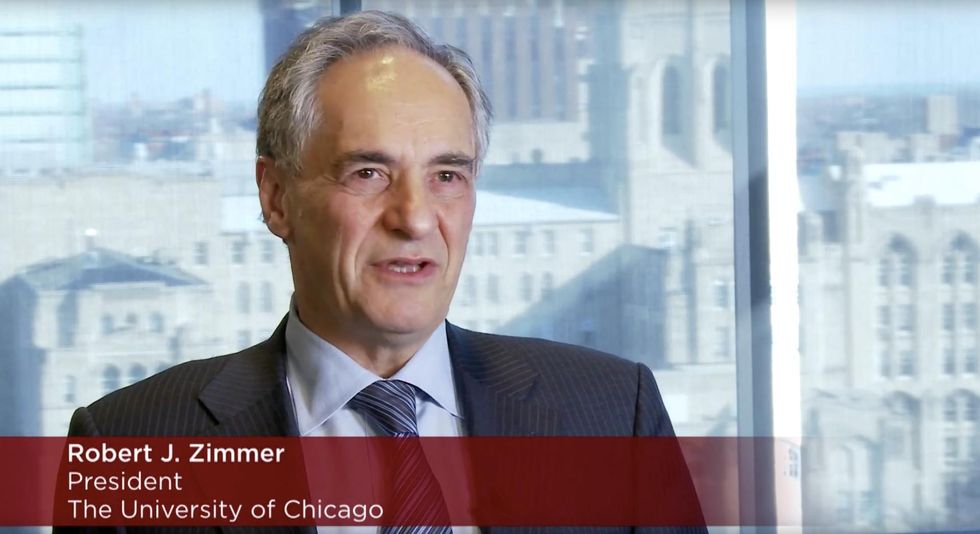
University of Chicago President Robert Zimmer is advocating for both freedom of speech and academic freedom on college and university campuses across the U.S. (Image source: YouTube screenshot)

University of Chicago President Robert Zimmer tackled the suppression of free speech on college campuses during a discussion in early October.
In the process, he advocated for both freedom of speech and academic freedom on college and university campuses across the U.S.
Zimmer, who has been the school's president since 2006, spoke at the City Club of Cleveland, in Cleveland on Oct. 3, where he discussed the school's policy on free speech and expression.
Administration at the University of Chicago — which is well known for its 2015 "Chicago Statement" — is adamant that one of the university's duties is to uphold the right to free speech in order to foster the ability for constructive discussion.
The school came under fire in January after one of the school's faculty members invited former White House chief strategist Steve Bannon to speak at the campus. Though students held protests on the campus, demanding that Bannon not be able to visit the university, the school still permitted Bannon to come and speak, though a date has yet to be set.
"It is for the individual members of the University community, not for the University as an institution, to make those judgments for themselves, and to act on those judgments by not seeking to suppress speech, but by openly and vigorously contesting the ideas that they oppose," a portion of the statement explaining the university's decision read.
In his speech at the City Club of Cleveland, Zimmer spoke out against people who would end free speech out of "self-righteous, moral, or political indignation, an agenda driven by such moral or political views, and comfort."
Zimmer added that free speech is necessary — especially on campuses of higher education — because "challenging one's assumptions inevitably creates discomfort, but a discomfort that is necessary for growth, understanding, and achievement.
"Privileging feelings, to the extent that a child feels they are always entitled to feel good and comfortable, and that the world should be organized around this, is not helpful in this regard," he added. "And what we are seeing in some cases within high schools and universities is an expectation, and then demands, for such privileging, and then the inappropriate acquiescence to such demands."
Zimmer also noted that he believes the suppression of free speech is sometimes done to fight for inclusivity, which often results in the opposite effect.
In conclusion, Zimmer reaffirmed his stance against creating "safe spaces" in such institutions for fear of sabotaging America's youth.
"Creating a sanctuary for comfort is not fulfilling our responsibility," he warned. "It is only through an environment of intellectual challenge and the free expression and open discourse that provides this challenge that we are fulfilling our obligations to students, their future, and the future of our society."
You can watch Zimmer's full speech in the video player below.
As of February, 35 colleges and universities across the U.S. have adopted — or adapted — a manifestation of the "Chicago Statement."
Such institutions include, but are not limited to, Columbia University, Johns Hopkins University, Georgetown University, Princeton University, Purdue University, Michigan State University, the University of Missouri System, and Louisiana State University.
You can read the rest of the list here.
(H/T: Campus Reform)